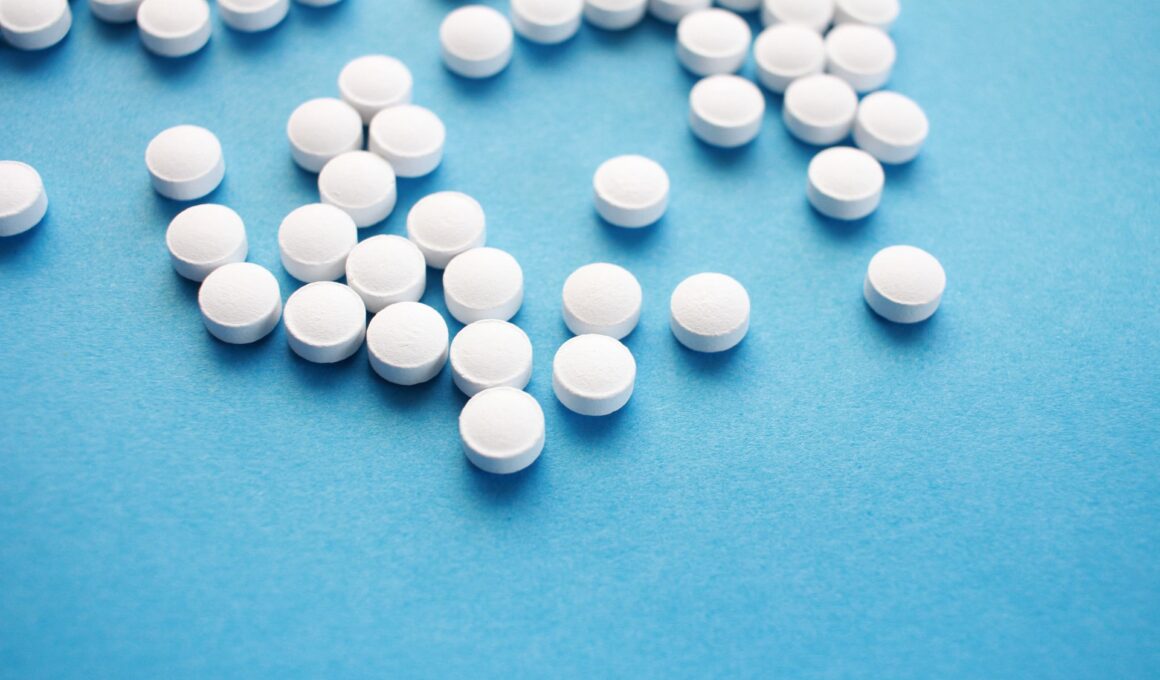BMJ Journals – British Medical Journals
Evidence Based Medicine
Luis Ignacio Garegnani1, ; Eva Madrid2, Nicolás Meza2
April 22, 2021
Key message(s):
- … a general publication from the Pan American Health Organization (PAHO) stated that “…ivermectin is incorrectly being used for the treatment of COVID-19, without any scientific evidence of its efficacy and safety for the treatment of this disease.”23
- Different websites (such as
https://ivmmeta.com/, https://c19ivermectin.com/,
https://tratamientotemprano.org/estudios-ivermectina/, among others)
have conducted meta-analyses with ivermectin studies, showing unpublished colourful forest plots which rapidly gained public acknowledgement and were disseminated via social media, without following any methodological or report guidelines.
- These websites do not include protocol registration with methods, search strategies, inclusion criteria, quality assessment of the included studies nor the certainty of the evidence of the pooled estimates.
- … research related to ivermectin in COVID-19 has serious methodological limitations resulting in very low certainty of the evidence, and continues to grow.37–39
- The use of ivermectin, among others repurposed drugs for prophylaxis or treatment for COVID-19, should be done based on: (1) trustable evidence, (2) without conflicts of interest, (3) with proven safety and efficacy in patient-consented, (4) ethically approved, (5) randomised clinical trials.
Complete article:
Since WHO declared the COVID-19 as a pandemic,1 2 healthcare systems all over the world have focused their efforts on limiting the spread of SARS-CoV-2, and despite the ceaseless development of strategies to struggle with the impact of COVID-19, there is no sign of let-up.
And the stress and overburden elicited by the pandemic—especially in vulnerable or marginalised populations—remain unstoppable, while the possibility of massive vaccination gives hope for a respite.3 4
Beyond public health interventions, several drugs have been considered for the treatment of SARS-CoV-2 infection,5 which triggers severe respiratory symptoms and critical illness in approximately 5%–20% of patients, with intensive care requirements and high mortality.6–10
In this article, we appraise and debate about the available evidence regarding the role of ivermectin for COVID-19.
Randomised Evaluation of COVID-19 Therapy (RECOVERY) trial results have had a critical role establishing the most useful pharmacological interventions in COVID-19 critical care, such as dexamethasone.11
However, despite the development of new therapies and the attempts for implementing repurposed drugs (because of their potential immunomodulator or antiviral effects), no reliable specific therapy has been identified yet.
Azithromycin, chloroquine and hydroxychloroquine are some of those drugs, whose adverse effects and/or concerns about efficacy on COVID-19 treatment12 have determined its deimplementation by different agencies and regulatory authorities.13–15
And despite the wide dissemination of these recommendations, paradoxically, its adherence in both high-income, and middle-income and low-income countries has been hindered not only by the COVID-19 social media infodemic, but also by authorities.16
Ivermectin is a broad-spectrum antiparasitic agent approved by the Food and Drug Administration (FDA) of the USA proved to be safe at the conventional dose of ≤200 µg/kg, although severe adverse effects ranging from ataxia to seizures have occasionally been reported.5
And due to its in vitro antiviral activity against a broad range of viruses, it has been used off-label for the treatment of some viral diseases.13 17
In a vertiginous search for COVID-19 treatments, Caly et al conducted an in vitro exploration that showed ivermectin’s inhibitor role on the replication of the SARS-CoV-2 virus,17 18 among few other in silico and in vitro results suggesting the same.19–21
Thus, a considerable amount of preprints and protocol records quickly appeared, reporting the clinical efficacy of ivermectin in standard doses for COVID-19.
The dissemination of these results caused confusion, and the general population and some clinicians endorsed the use of ivermectin, especially in Latin America.22
However, in a matter of days since the publication of Caly et al17 and its repercussions, a general publication from the Pan American Health Organization (PAHO) stated that “…ivermectin is incorrectly being used for the treatment of COVID-19, without any scientific evidence of its efficacy and safety for the treatment of this disease.”23
An important controversial point to consider in any rationale is the 5 µM required concentration to reach the anti-SARS-CoV-2 action of ivermectin observed in vitro,17 which is much higher than 0.28 µM, the maximum reported plasma concentration achieved in vivo with a dose of approximately 1700 µg/kg (about nine times the FDA-approved dosification).24 25
In this sense, basic fundamentals for assessing ivermectin in COVID-19 at a clinical level appear to be insufficient. Among other reasons, we believe this might have led WHO to exclude ivermectin from its Solidarity Trial for repurposed drugs for COVID-19,12 which raises questions about the pertinence of conducting clinical studies on ivermectin.
Nevertheless, assessments of ivermectin as prophylaxis or treatment for mild to severe COVID-19 continue being published in preprints26 27 and protocol repositories,28 29 which do not follow the recommended process to ensure quality standards in publications; whereas peer-reviewed reports (both observational and experimental studies) are slowly emerging, yet methodologically limited by heterogeneity in population receiving ivermectin, dosis applied and uncontrolled cointerventions.28–30
Similarly, other studies that can be rapidly retrieved in ClinicalTrials.gov, medRxiv and MEDLINE make up a quite heterogeneous body of evidence31–33 (including ivermectin as intervention, but with different underlying clinical questions), among other issues that do not contribute to the certainty of evidence—according to the systematic reviews that we comment on below.
- Up to February 2021, the PAHO identified twenty two ivermectin randomised clinical trials through a rapid review of current available literature.34
There is considerable heterogeneity in the population receiving ivermectin, with studies administering it to family contacts of confirmed COVID-19 cases as a prophylactic measure29 and other studies using ivermectin for treatment of mild and moderate infected cases28 or even severe hospitalised patients.30
- Applied dosis and outcomes of interest were also highly variable.
Additionally, patients also received various cointerventions, and control groups received different kinds of comparators ranging from placebo or no intervention to standard care or even hydroxychloroquine.
The authors claim that pooled estimates suggest beneficial effects with ivermectin, but the certainty of the evidence was very low due to high risk of bias and small number of events throughout the included studies.
- Most study results have been made publicly available as preprints or unpublished, with no peer review or formal editorial process.
- Others incorporated their results only in the clinical trial register, but nearly half of these randomised clinical trials had not been registered. Registering clinical trials before they begin and making results available fulfils a large number of purposes, like reducing publication and selective outcome reporting biases, promoting more efficient allocation of research funds and facilitating evidence syntheses that will inform stakeholders and decision-makers in the future.
A recently published systematic review and network meta-analysis35 compared the efficacy and safety of pharmacological interventions for COVID-19 in hospitalised patients.
It included 110 studies (78 published and 38 unpublished) with 40 randomised clinical trials and 70 observational studies. Based on observational data, they found that high-dose intravenous immunoglobulin, ivermectin and tocilizumab were associated with reduced mortality rate in critically ill patients.
None of the analysed drugs was significantly associated with increased non-cardiac serious adverse events compared with standard care, but the overall certainty of the evidence was very low in all outcomes and reduced the ability for recommendation.
Different websites (such as https://ivmmeta.com/, https://c19ivermectin.com/,
https://tratamientotemprano.org/ estudios-ivermectina/,
among others) have conducted meta-analyses with ivermectin studies, showing unpublished colourful forest plots which rapidly gained public acknowledgement and were disseminated via social media, without following any methodological or report guidelines.
These websites do not include protocol registration with methods, search strategies, inclusion criteria, quality assessment of the included studies nor the certainty of the evidence of the pooled estimates.
Prospective registration of systematic reviews with or without meta-analysis protocols is a key feature for providing transparency in the review process and ensuring protection against reporting biases, by revealing differences between the methods or outcomes reported in the published review and those planned in the registered protocol.
These websites show pooled estimates suggesting significant benefits with ivermectin, which has resulted in confusion for clinicians, patients and even decision-makers.
This is usually a problem when performing meta-analyses which are not based in rigorous systematic reviews, often leading to spread spurious or fallacious findings.36
Concluding, research related to ivermectin in COVID-19 has serious methodological limitations resulting in very low certainty of the evidence, and continues to grow.37–39
The use of ivermectin, among others repurposed drugs for prophylaxis or treatment for COVID-19, should be done based on
- trustable evidence,
- without conflicts of interest,
- with proven safety and efficacy in patient-consented,
- ethically approved,
- randomised clinical trials.
About the authors:
Luis Ignacio Garegnani1, ; Eva Madrid2, Nicolás Meza2
1 Research Department. Instituto Universitario del Hospital Italiano de Buenos Aires, Buenos Aires, Argentina
2 Interdisciplinary Centre for Health Studies (CIESAL), Universidad de Valparaíso, Cochrane Chile Associate Centre, Viña del Mar, Chile
References:
See original article
Originally published at https://ebm.bmj.com
https://ebm.bmj.com/content/early/2021/05/26/bmjebm-2021-111678
https://ebm.bmj.com/content/ebmed/early/2021/05/26/bmjebm-2021-111678.full.pdf











